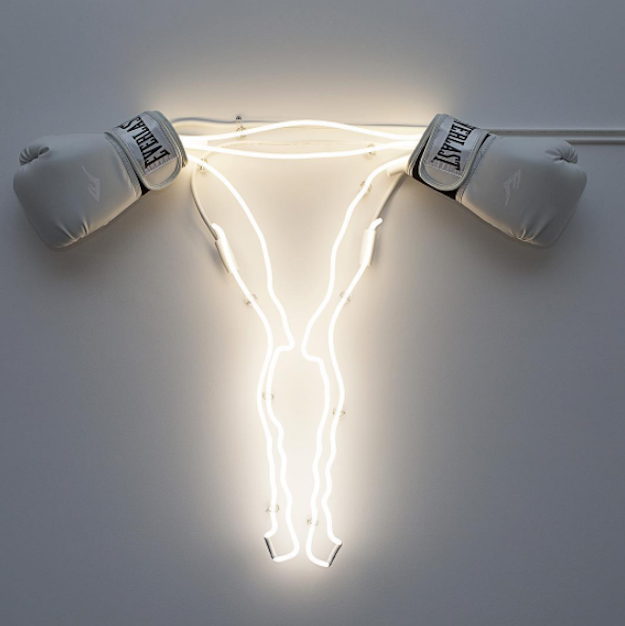Every month for the past few years, I've strolled into my pharmacy and out with my monthly birth control prescription without ever taking out my wallet. And every month I think to myself, Damn, that was easy.

The rates of abortion and unplanned pregnancy in the US are currently at record lows. And experts say that increased access to highly effective birth control is primarily responsible.
Let's start with the US abortion rate, which recently hit a record low in 2014.
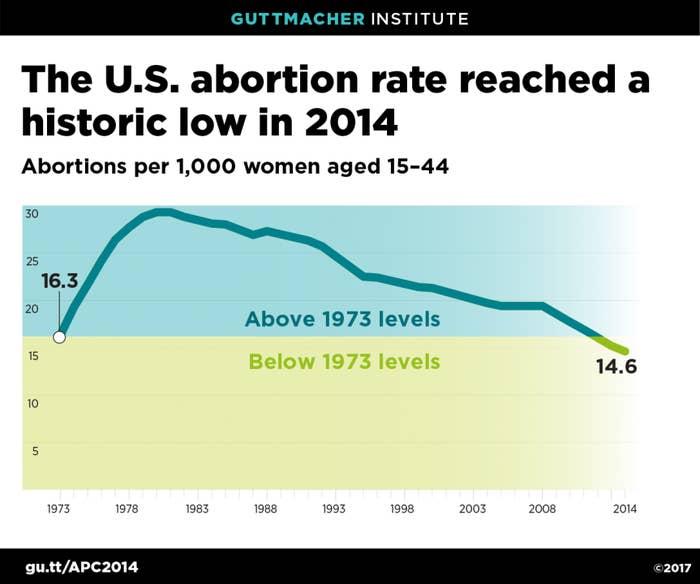
Experts say that abortions are down for reasons that have to do with birth control, not abortion restrictions.
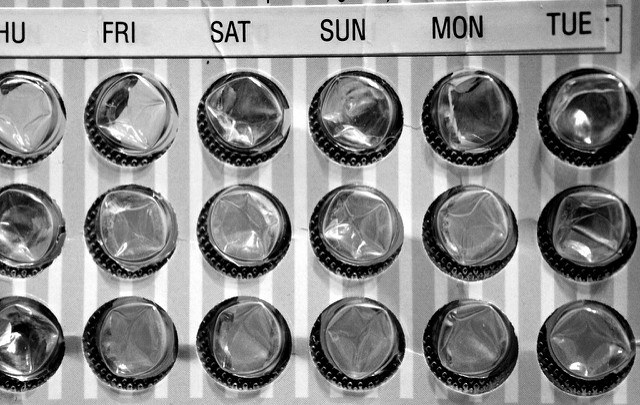
How do we know that? Well, it's no coincidence that unplanned pregnancies have also dropped significantly in recent years.
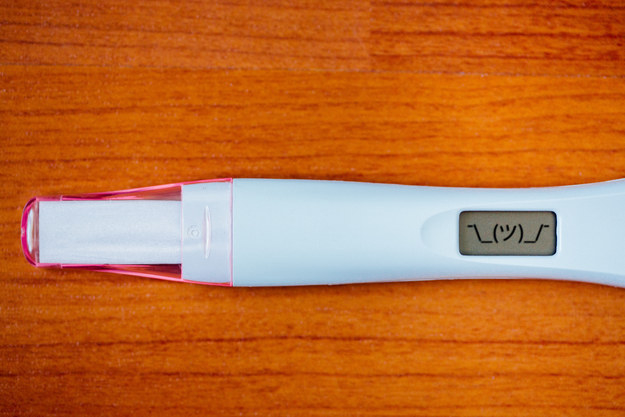
More people use highly effective birth control when they're actually able to access and afford it.

So that's where we are today: Access and affordability to a wide range of highly effective birth control methods have increased; meanwhile, the rates of unplanned pregnancy and abortion have decreased. Now what?
It's unclear what might happen to the Affordable Care Act's birth control coverage mandate. We don't know if all insured Americans will go back to paying a copay for birth control, which would likely make the highly effective LARC methods more expensive than other methods like the pill or ring. Already, birth control users are tweeting about getting the IUD and making appointments to get them put in now, just in case.
"If there are fewer women with health insurance, or health insurance that doesn't cover contraceptives, then women are not going to have the same capacity to prevent unplanned pregnancy," says Jones.
What we do know is that low-income women have a higher rate of unplanned pregnancy, and factors like Title X and Medicaid expansion have been helping many of them access free or low-cost birth control, which can bring that rate down.
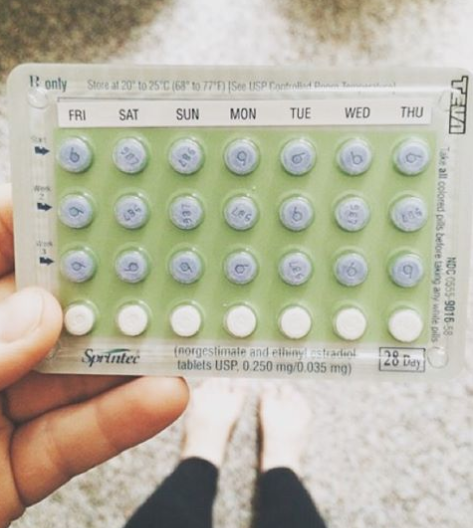
And then there's Planned Parenthood. "Defunding" Planned Parenthood — which Republicans in Congress want — would prohibit them from getting Medicaid reimbursements or Title X funds, which means they could no longer serve low-income patients that rely on those programs.
